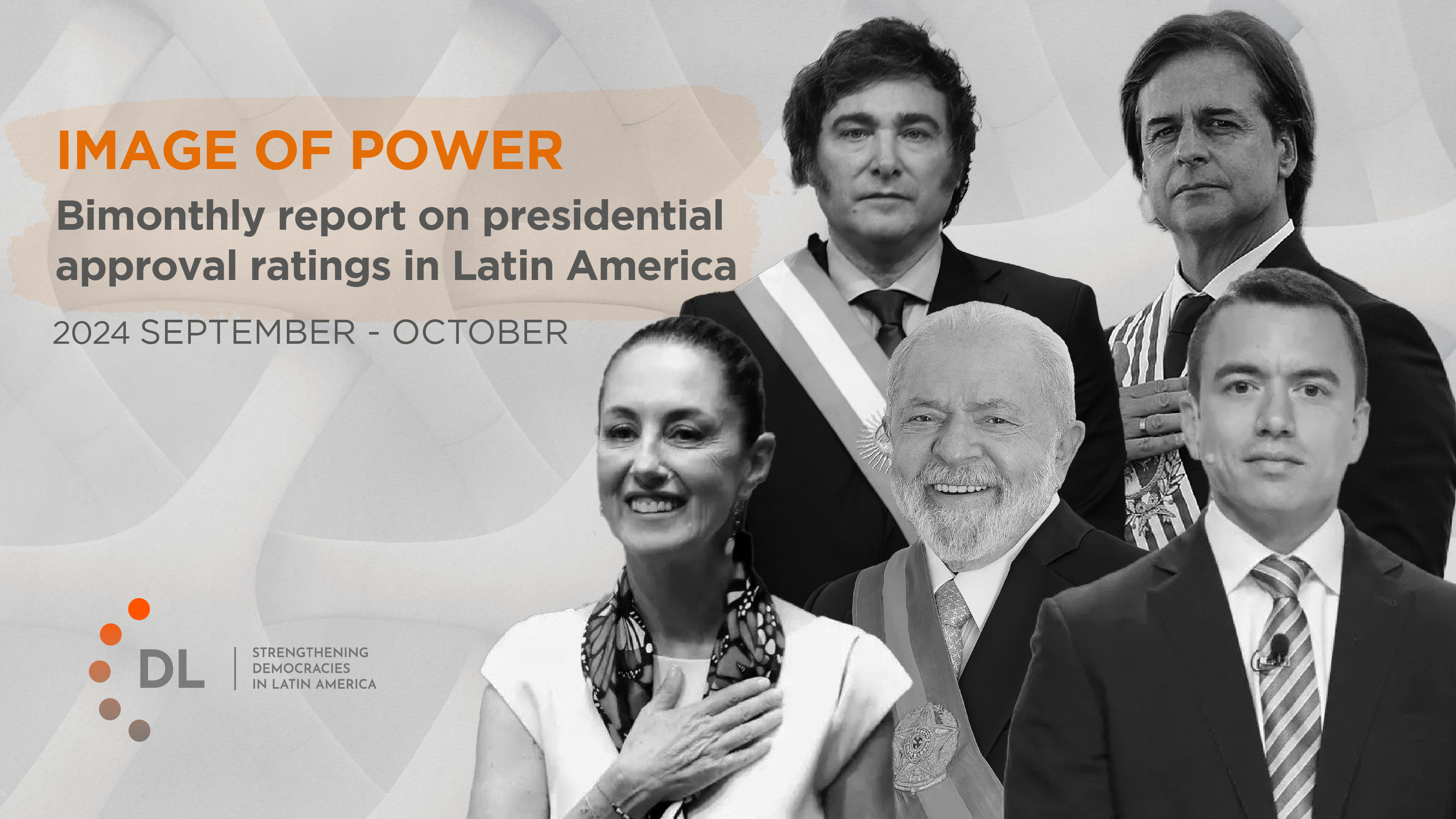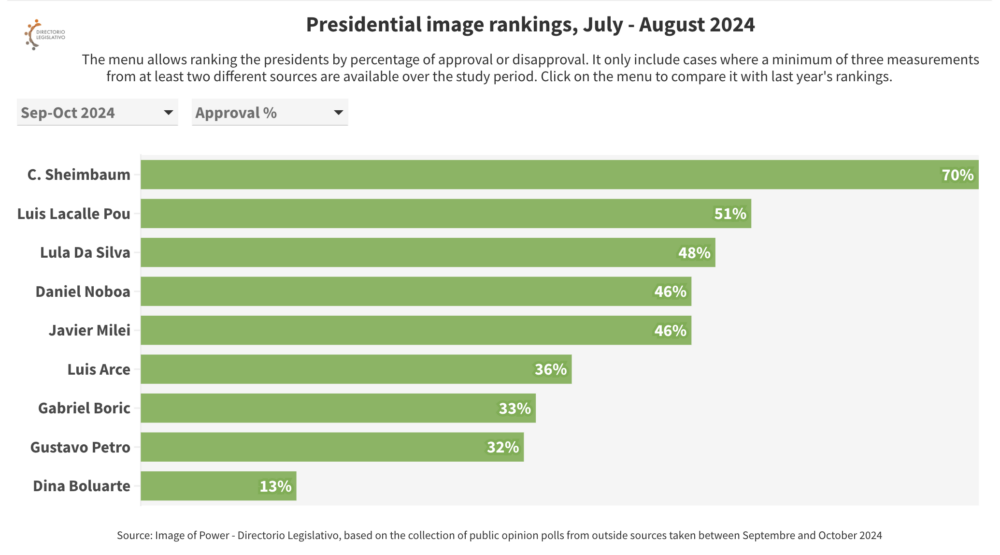Image of Power: Claudia Sheinbaum begins her presidency with an approval rating close to 70%

Welcome to a new edition of Image of Power, the Legislative Directory’s presidential approval tracker for Latin America.
This report highlights Claudia Sheinbaum, Mexico’s newly elected president, who assumed office with an approval rating close to 70% following a decisive victory in June. Her presidency raises a pivotal question: will she define her own agenda within MORENA, or remain under the influence of former President Andrés
Manuel López Obrador? While continuing key reforms initiated by her predecessor -such as judicial restructuring and the overhaul of oversight institutions- public opinion identifies improving security as her primary challenge.

Presidential approval ratings in the region have remained stable over recent months. Leaders like Lula da Silva, Javier Milei, Luis Lacalle Pou, and Daniel Noboa hover around 50%, each navigating unique political landscapes:
Luis Lacalle Pou of Uruguay is approaching the end of his term after maintaining steady approval ratings throughout nearly five years in office, including during the COVID-19 pandemic. In the first round of elections to select his successor, Yamandú Orsi secured 43.9% of the vote, while Álvaro Delgado of the National Party earned 26.8%. Both will face off in a November 24 runoff. Meanwhile, Uruguay’s new Congress reflects a balanced House of Representatives, with the Frente Amplio holding a Senate majority. Two referendums, one on pension reform and another on allowing nighttime searches, were rejected by voters.
Daniel Noboa, Ecuador’s president, has experienced a sharp decline in approval since taking office. The country faces an economic recession, persistent security
concerns, and extended power outages in major cities. Political tensions have intensified following the suspension of Vice President Verónica Abad, as Noboa
prepares to delegate power ahead of the 2025 elections.
In Brazil, Lula da Silva managed his first municipal elections since taking office. Traditional parties from the “Centrão” emerged as winners, while discussions
on potential candidates for the 2026 presidential race have already begun.
In Argentina, Javier Milei is engaged in high-stakes negotiations over the 2025 budget, a crucial step in advancing his economic agenda. His success depends on
securing agreements with governors, legislators, and other key political figures.
Leaders such as Gabriel Boric in Chile and Gustavo Petro in Colombia maintain steady, though relatively low, approval ratings of around 30%.
